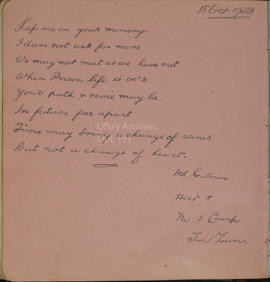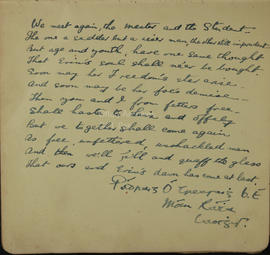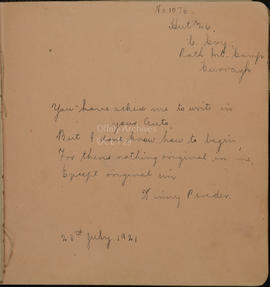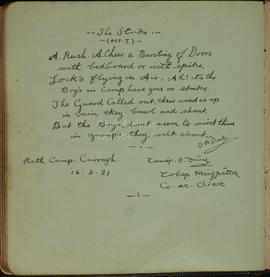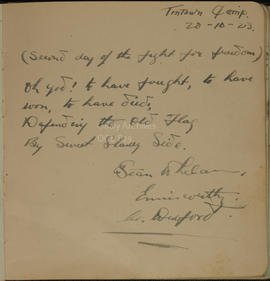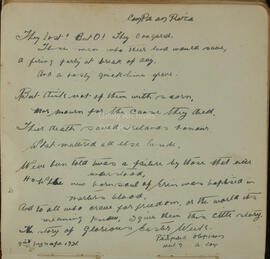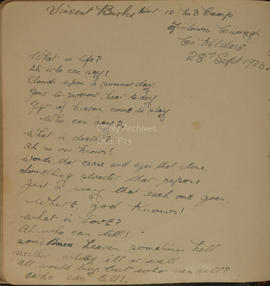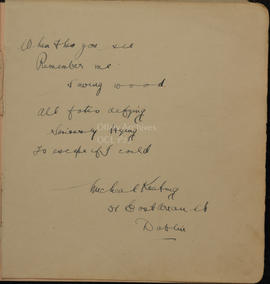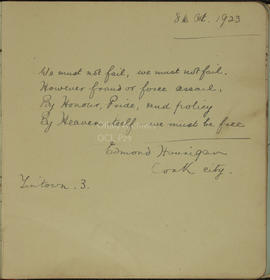Verse transcribed by M. Galvin, Hut 5, Tintown No. 3 Camp,
'Keep me in your memory
I dare not ask for more
We may not meet as we have met
When prison life is o'er
Your path and mine may be
In future far apart
Time may bring a change of scenes
But not a change of heart.
